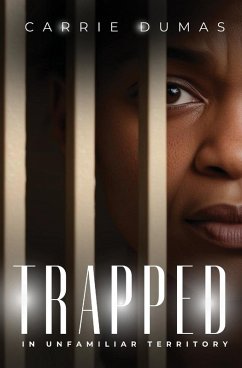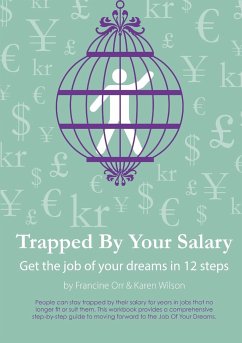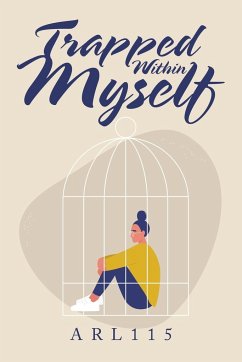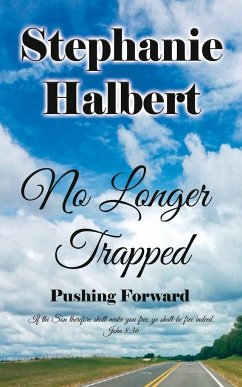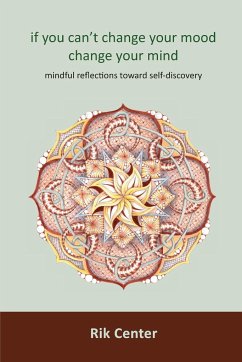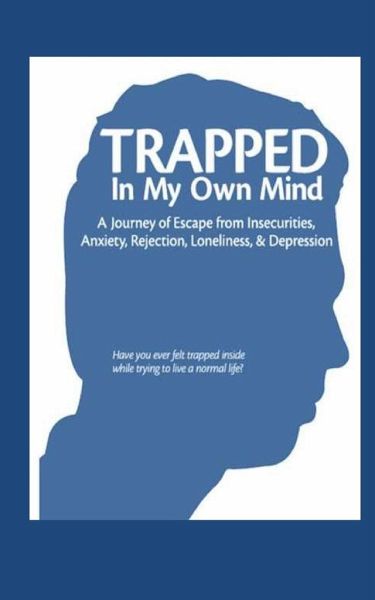
Trapped in My Own Mind
Versandkostenfrei!
Versandfertig in 1-2 Wochen
10,99 €
inkl. MwSt.

PAYBACK Punkte
5 °P sammeln!
Trapped in My Own Mind is about us--- who we are and who we can become. The authors could be any one of us-all of us who know hurt and darkness. These personal experiences reflect our humanity---our pain, our struggles, our values, and our beliefs. The stories are about our habits that finally hurt so much that we are desperate enough to change our behaviors. Although life holds few certainties, two things are certain: change and choice. We can choose to give-up or to grow towards our best selves. Choosing to walk through the fire of change does burn, and along the path there are many places t...
Trapped in My Own Mind is about us--- who we are and who we can become. The authors could be any one of us-all of us who know hurt and darkness. These personal experiences reflect our humanity---our pain, our struggles, our values, and our beliefs. The stories are about our habits that finally hurt so much that we are desperate enough to change our behaviors. Although life holds few certainties, two things are certain: change and choice. We can choose to give-up or to grow towards our best selves. Choosing to walk through the fire of change does burn, and along the path there are many places to stumble and fall. But we can get up again and again. And each time the wounds heal more and we learn our strengths. We learn gratitude and compassion. We find our own truth. To these stories of self-discovery, we can apply psychological perspectives. Humanistic psychology emphasizes free will, personal responsibility, and reaching our full potential. Self-awareness and self-acceptance are necessary but not always easy, since true self-examination reveals the good and the bad. The author of the story It's a Gift expresses this well. "The fastest way to happiness is learning to accept who I am, gifts, flaws and all; and learning to love that person in the here and now, as I am today. Not who I may be, or who I was, but who I am." The field of positive psychology also focuses on optimal human functioning. We can work with our virtues and skills to nourish positive emotions, traits, and relationships. No matter how low we feel, we can find something worthwhile in ourselves, and shift our momentum toward more uplifting experiences. In chapter six, Stealth Deceit, the author writes, "I do not believe that influences and challenges in my life are actually the direct causes of depression. But the thoughts and emotional reactions that develop in me are what allow depression to take hold of me." And in chapter four he states, "A lot of my struggles have not necessarily come from facts, but from what I thought was fact." These insights clearly reflect a principle of cognitive psychology; our negative thoughts may cause an emotional over-reaction. When we challenge our faulty thinking and replace it with more productive thinking, we activate the cycle of better thinking, better feeling, and better doing. Once when I was down with bad times a friend simply said, "It is all part of it." I understood her reality check to mean that being human has its ups and downs and we don't just get the good times. However, we do have some choice. We can suffer in self-recrimination and blame, or we can face our challenges and take responsibility for our healing and growth. We start our journey and find the journey fuels us forward. I wish you fulfilling travels. Robin Popp, M.A. Associate Professor of Psychology Chattanooga State Community College






